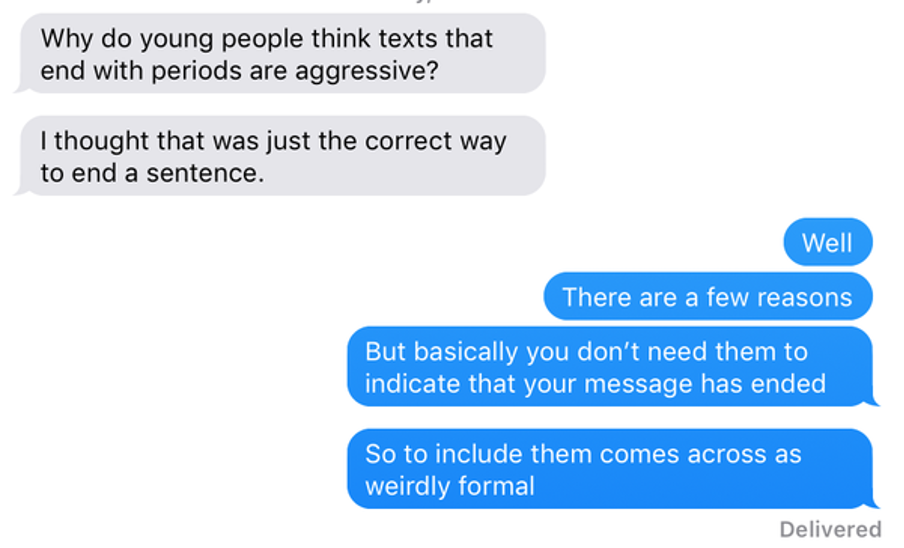Today we're revisiting a piece we wrote about teen texting trends, inspired by a 2021 article from the New York Times: “No More Periods When Texting. Period.”
Many are peeved by teens’ use of language, for example suggesting that accepting teenagers' lazy abandonment of full stops means we're condoning bad writing.
Code switching: a natural phenomenon
As a copywriter and a former teacher of English Literature and Language, I'm not bothered by teens not using full stops when texting - it's perfectly in line with code switching (which we all do), i.e., adapting our linguistic tone and style to suit different occasions.
Not only is it normal that adolescents "enforce each other’s nonstandard language as a way of demonstrating belonging to a group", but younger generations are the most ‘linguistically innovative’ of any age group.
Younger generations are the most ‘linguistically innovative’ of any age group.

Language is malleable and constantly mutating
Language has always been informed not only by social movements but by younger generations who adopt and shape language to meet their needs. So texting trends don’t signal the ‘decline of civilisation’, merely the natural progression of ‘linguistic drift’.
Read our full article on LinkedIn.






